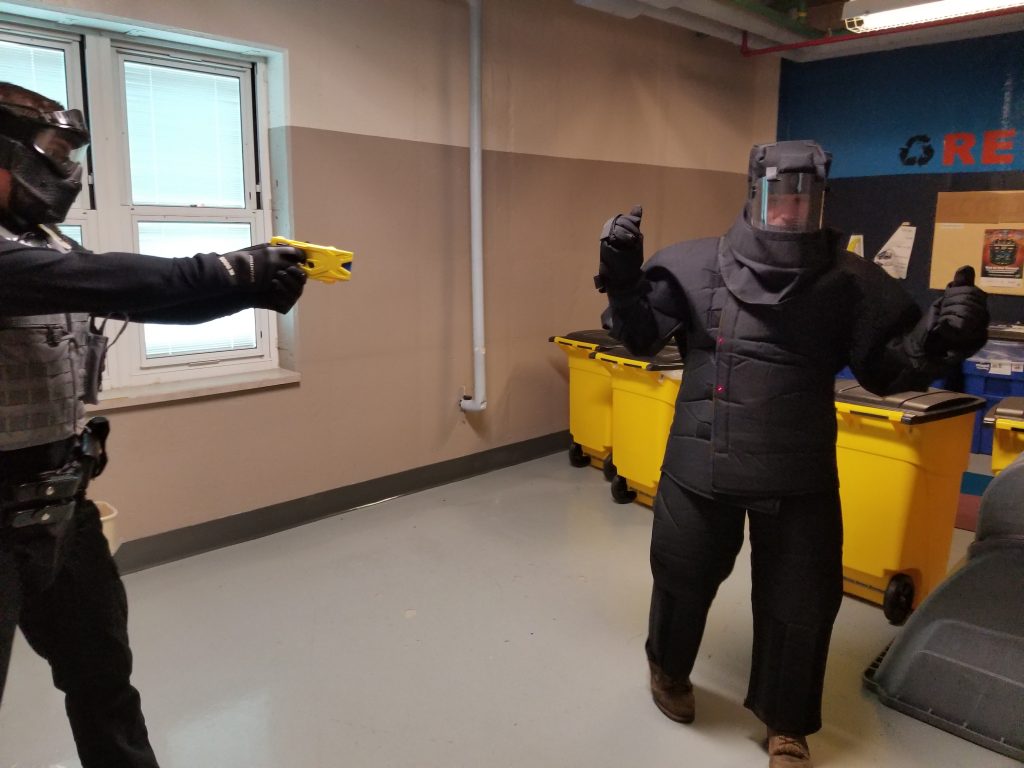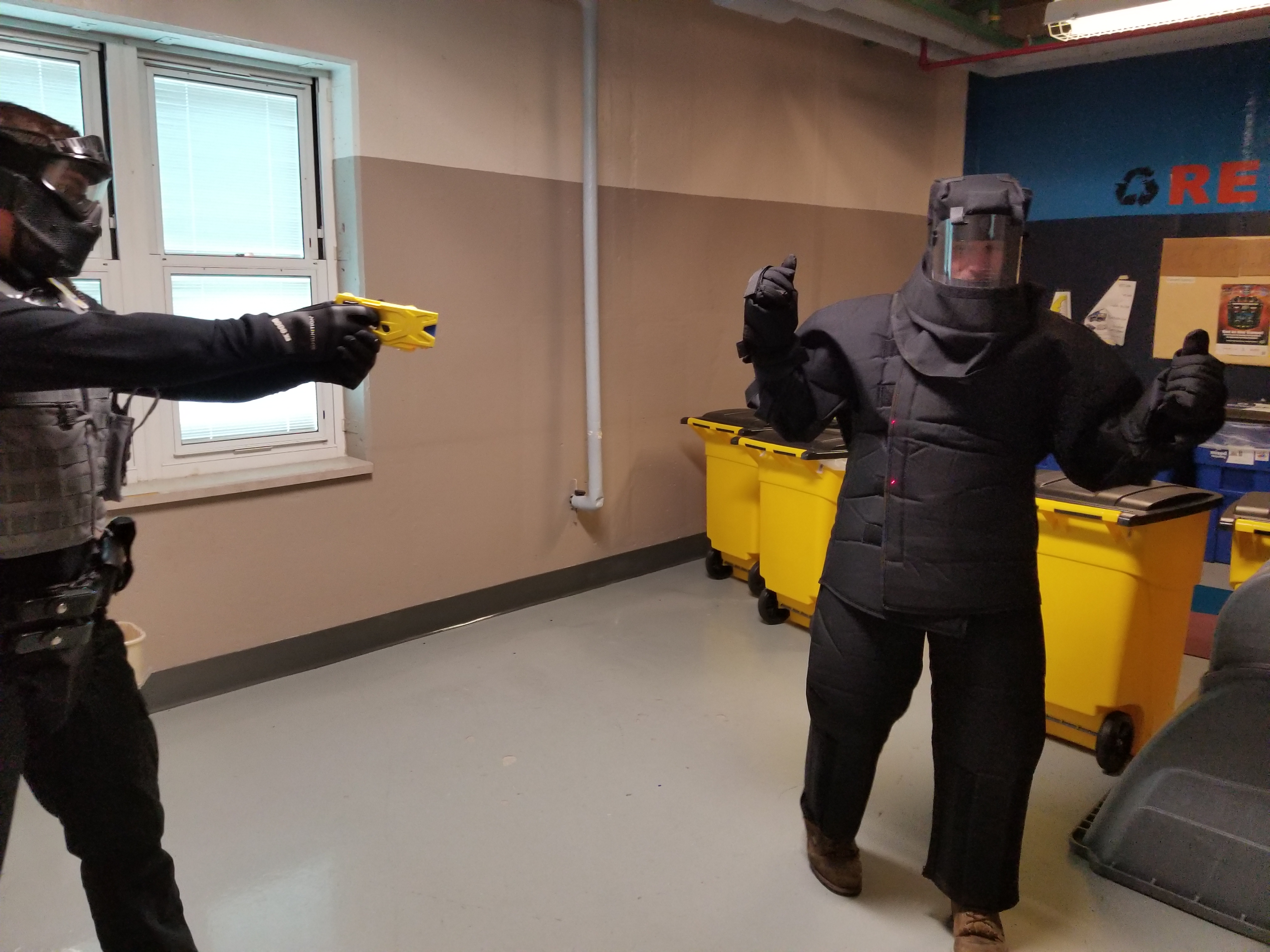UPD expands scenario training to full suite of “reality based” operations
 The SUNY New Paltz University Police Department (UPD) again hosted law enforcement training on campus this summer, while many students and faculty were away from campus.
The SUNY New Paltz University Police Department (UPD) again hosted law enforcement training on campus this summer, while many students and faculty were away from campus.
The “reality-based training,” which this year included about 40 UPD and Town of New Paltz officers and supervisors, represents an expansion of the active shooter trainings UPD has organized in recent years.
“We are still focusing attention on that kind of shooter training, and honing that craft, but we’ve begun doing training that involves more everyday calls: car accidents, medical emergencies, domestic calls,” said UPD Lt. Ryan Williams. “We’re enhancing officers’ skills not only in crisis response, but also in interviewing, listening and recognizing when de-escalation is the appropriate course of action”
Participating officers wear protective gear and use “simunitions” – realistic weapons that fire paint pellets – and are given scenario briefings designed to develop particular response aptitudes.
Williams described an example scenario in which officers are told that they are responding to a domestic call involving a male and female in a residence hall room, where the female states that she sustained injuries and has requested an ambulance.
“That paints a picture, but the officers then need to obtain more information on the scene,” Williams said. “They may talk to the victim to ensure she’s in a safe area, make determinations as to whether an arrest is called for, and make efforts to learn whether there are any weapons present.”
As some of these simulations unfold, an aggressor may appear on the scene unexpectedly, requiring officers to make snap decisions about whether the situation can be defused verbally, or whether physical force is needed to secure the environment.
“These reps are all about helping our officers make the right choices,” Williams said. “Sometimes that means learning when to de-escalate, learning how to back down when the hostile person is listening and responding to commands. We’re ending every scenario with a positive outcome, giving our officers immediate feedback on what they could do better and asking them to run through the scenario again to make sure that they end the call successfully.”
Reality-based trainings were held in Esopus hall on Aug. 8-10, and again on Aug. 16.

